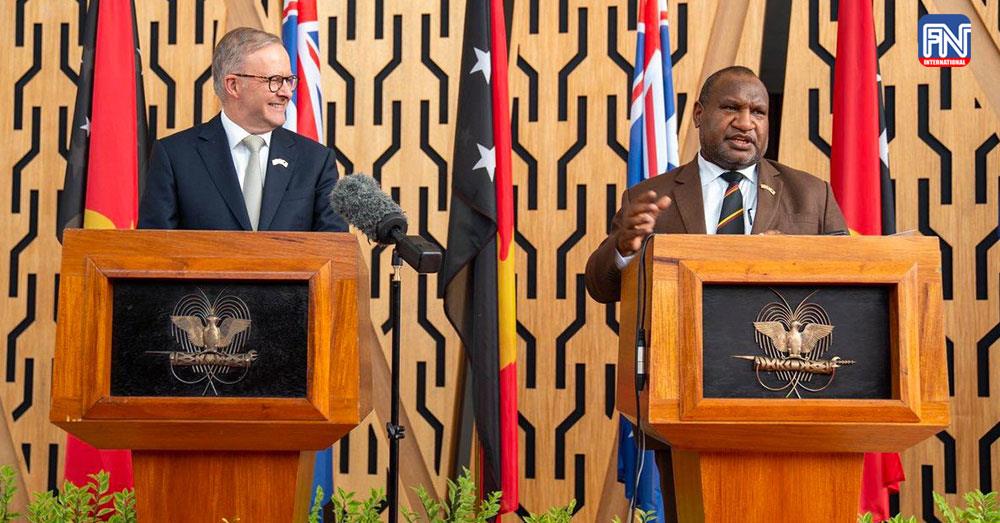CANBERRA, Dec. 7 (Reuters) – Australia and neighbouring Papua New Guinea (PNG) signed a security agreement on Thursday that Prime Minister Anthony Albanese and his counterpart James Marape said showed the closeness of the two nations.
The deal is designed to bolster Papua New Guinea's internal security through more assistance in policing, defence and the judiciary as the Pacific Islands' largest nation seeks to develop its economy.
Amid strategic competition between China and the United States in the region, PNG signed a defence deal with the U.S. in May to upgrade its military bases, and is boosting trade ties with China.
Marape told a press conference with Albanese in Canberra that the agreement with Australia showed they were "brother and sister nations", but added PNG would not pick sides and had a foreign policy of "friends to all".
Albanese said the deal "will make it easier for Australia to help PNG address its internal security needs and for Australia and Papua New Guinea to support each other's security and the region's stability".
He paid tribute to the support PNG's population gave to Australian service members during World War Two, and said it was a defence relationship forged through sacrifice.
"For our interests going forward, we have no closer friends than Papua New Guinea," Albanese said.
PNG's judiciary, public service and borders were established by Australia before PNG became an independent nation 48 years ago, Marape said.
"You have always given support to us. What happens up north of your borders has deep, deep shared effect, benefit, consequences, on our region," he added.
Australian Pacific Minister Pat Conroy told the Australian Broadcasting Corp the agreement had treaty-like powers, and Australia would spend A$200 million ($130 million) on police training and infrastructure to help PNG double its police force to 10,000 officers.
Australian and other Commonwealth nation police will be hired by PNG to fill gaps in around 50 police management roles on short-term contracts.
The agreement says that enhancing PNG's capabilities contributes to "Pacific-led regional security and stability" and that the two nations will prioritise consultations with each other on PNG's need for security-related equipment, infrastructure and training.
As China has sought to boost its security presence in the Pacific Islands, signing deals to equip and train police in Solomon Islands and Vanuatu, where it is a large infrastructure lender, Australia has said security should be provided by Pacific countries.
The Australia-PNG deal says the two nations will consult if there is a threat to peace in the Pacific or an external armed attack on either party.
Conroy said it was "very strong" language that was comparable to commitments in Australia's security alliance with the United States.
The deal also covers classified information sharing, critical infrastructure, cyber, maritime and aviation security and health.
($1 = 1.5305 Australian dollars)

Photo from AFP